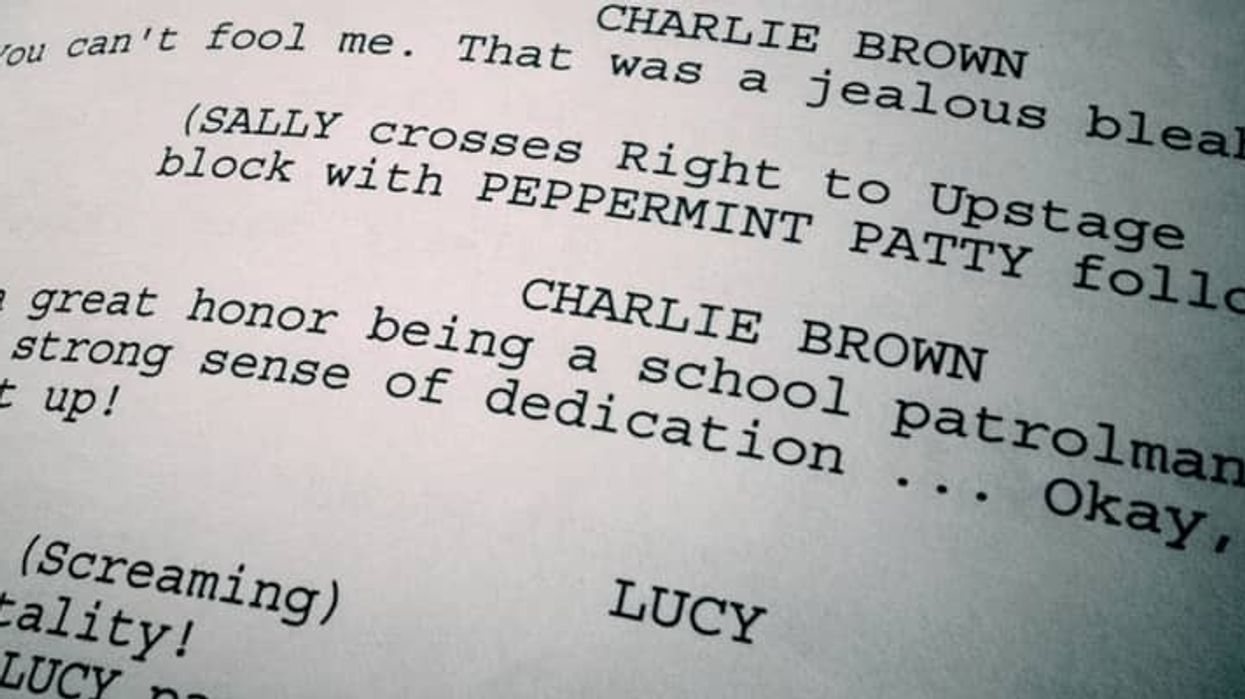The 'One Page = One Minute' Screenwriting Rule is Wrong (and Here's the Data)
You've been told that one minute on the page equals one minute on the screen. But how accurate is that assumption?

I'm not sure where the idea that "one page equals one minute of screen time" got started, but it's a maxim I heard all throughout film school and my professional life. I've even written about it for this site.
I've always seen it as a flexible rule. You might hear something different from producers, who generally want to keep the page count down, or from streamers like Quibi who want to keep their shows under 10 minutes, and thus scripts under 10 pages, but that's the way it goes.
Some contracts even limit the number of pages you can deliver.
Still, I've never seen research to back it up.
Enter screenwriting godfather John August. He teamed up with Stephen Follows, an esteemed film educator, to do a little research.
Let's see what they discovered.
The '1 Page = 1 Minute' Screenwriting Rule is Wrong
If you want the TL;DR version, the rule is wrong. If you want to go over the data, keep scrolling.
Okay, so how do you even measure something like this?
Here's what Stephen Follows says was his process, "I built a dataset of 761 scripts which had all been made into theatrically released movies. I removed any cover pages from the total page count and also removed four minutes from the publicly listed running time of a movie (my past research has shown that 3 minutes 43 seconds is the median end crawl length). To measure the effectiveness of the rule I looked at the ratio of pages to minutes. A 50-page script which becomes a 100-minute movie would have a ratio of 0.5, a 100-script and 100-minute movie would have a ratio of 1 and a 100-page script which created a 50-minute movie would have a ratio of 2."
Make sense?
In the below infographic, you can see some scripts were close to the page per minute, but only 22% of them actually lay in there. Others averaged more like 1.2 minutes per page. While others were at .8 minutes. So 100 pages would factor to be somewhere around 80-120 minutes.

We know that writers' "final scripts" do not usually dictate the movie. There are people writing more on set; lots of insert shots and scenes are added in post. Editing in general usually builds a different movie than what is on the page.
And distributors might have a time cutoff or other pressures to keep the runtime down.
We're not all making The Irishman.
The chart below shows that most scripts Stephen analyzed fell way out of the "one-page = one-minute" rule.

So where does this leave us?
While the very idea of one page per minute is fairly easily debunked, the idea, in general, is still a good one. Especially for beginning writers trying to track their projects. Still, no studio heads or companies should be making story decisions based on the number of pages at the end.
All in all, page length does not account for how well characters arc, if audiences are entertained, or how many awards a movie wins.
So at the end of the day, no, the pages don't correlate, but if it helps you begin to time your project in your mind, feel free to use it.
I suggest timing yourself envisioning it or reading it aloud at the pace you want things to go.
These will always give a more accurate reading...but I don't have any data except experience to back it up.
You can check out Stephen's findings and more charts here!
What's next? Write a great TV pilot!
Hundreds of pilots sell to networks and streaming services every year. What's stopping you from selling your idea?
Keep reading!











